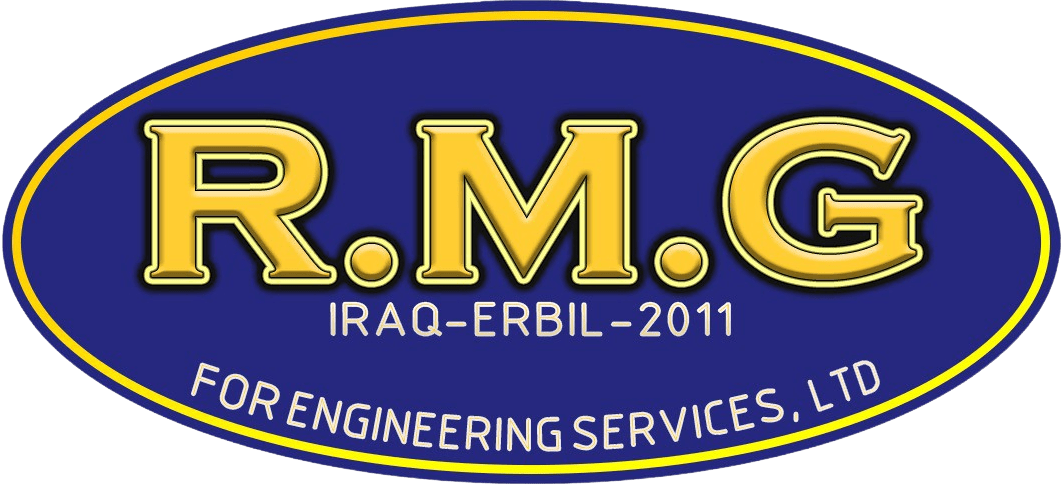Construction Material & Field Testing
R.M.G for Engineering Services, LTD, has a central construction material testing laboratory in Erbil (Hawler). The laboratory has unique testing equipment, devises and tools which are continually maintained, inspected and calibrated in accordance with the highest industry quality assurance standards. Our laboratory can test materials such as soils, aggregates, concrete, masonry, steel, and asphalt. R.M.G can also provide project pavement designs, concrete and asphalt mix designs.
Table of Contents
Soils
Soils are tested in our laboratories to define soil properties and soil characteristics. Findings are used to determine project specifications, as well as to identify possible constructability issues. R.M.G utilizes a full range of technology available to the science of soils testing and exploration. Tests employed are unconfined compressive strength, direct shear, tri-axial shear, Atterberg limits, sieve analysis, moisture content, density, hydrometer, California Bearing Ratio, R-value, consolidation, expansion index, soil classification, hydraulic conductivity, thermal conductivity, and PH.
Aggregates
The quality of aggregates can be determined through laboratory testing. These tests are including, but not limited to: Sieve analysis, flat and elongated particles, fracture face, organic impurities, sand equivalent, specific gravity, sulfate soundness, abrasion test, and unit weight testing.
Concrete/Masonry
R.M.G provides mix designs for concrete, mortar, and grout, as well as mix design verification for each material mixes. Our laboratory has the capability to perform compressive strength and flexural strength testing on concrete, mortar and grout.
Asphalt
Laboratory services for asphalt include mix designs and mix design verification, along with other associated tests such as gradations and extractions, specific gravity, ductility, flash point, fire point, viscosity, softening point, penetration, etc. R.M.G’s staff has extensive experience with Marshall tests, hot mix designs and provides services to contractors and batch plants.
Steel
In addition to R.M.G field inspections of structural steel with visual inspections, R.M.G provides laboratory testing of steel. Tests are not limited to, but include: tensile strength, bend, elongation, etc.
Miscellaneous Tests
R.M.G has the ability to test and inspect about any material that is used in general construction. RMG even has some unique capabilities to test materials used in everyday activities, such as sandwich panels thicknesses and density of the foam or testing of soils for thermal resistivity and electrical conductivity, water pH, water chemical and biological testing, structural load testing, plate load testing, pile integrity testing, dynamic cone penetration testing, electrical resistivity, and electrical resistivity imaging for sub-surface soils.
Laboratory Capabilities
Soil Field Testing and Inspection
Over Lot Fill Placement Monitoring
Visual monitoring of fill placement lifts to ensure that materials and placement procedures are in accordance with project soil report requirements and specifications.
In-Place Density Testing
The use of a nuclear gauge or Sand Cone method to determine optimum moisture content and in-place density of soils.
Subgrade Inspections
Geotechnical observations made to ensure that structural assemblies are bearing on suitable subgrade materials, and to identify other potential structural issues.
Laboratory Testing
R.M.G has a fully staffed and equipped laboratory facility in Erbil to handle all necessary off-site testing requirements. The laboratory provide testing to support field personnel with tasks such as moisture density curves (proctors), California Bearing Ratios (CBRs), gradations, Atterberg limits, etc.
Soil Borrow Areas and Aggregate Source Evaluation/Suitability
The evaluation of the soil borrow pits is highly important, R.M.G is capable of evaluating borrow soils prior to import to project site. Aggregate quarries are also need properties determination, characteristics, and suitability for its intended use. This includes borrow source, pit source, and on-site source evaluations.
-
Concrete Mix Designs
R.M.G can provide mix designs and mix design reviews in its fully equipped Erbil Central laboratory.
-
Concrete Mixing Plant Inspection and Quality Control
Monitoring of concrete at the plant is performed to control key properties; including aggregate moisture content, mix air content, water/cement ratio, slump, fresh unit weight, temperature and concrete compressive strength.
-
On-Site Fresh Concrete Testing and Inspection
Field fresh concrete testing and inspections is to verify conformance to the specific project specifications. Concrete tests include slump, air content, temperature, unit weight, water-cement ratio, in addition to the casting of concrete cylinders/cubes/beams for compressive/flexural strength.
-
Reinforcing Steel Placement
Placement of reinforcing steel is verified for size, quantity, spacing and clearance in the concrete forms prior to the placement of concrete.
-
Compressive Strength Testing
Laboratory testing of concrete specimens is performed to determine the compressive strength of the concrete.
Fresh Concrete Testing
Asphalt Field Testing
-
Hot Asphaltic Concrete Mix Designs
R.M.G laboratory has the equipment and ability to perform necessary tests for hot asphaltic concrete mix designs and mix design verifications in timely manner
-
Asphalt Mixing Plant Inspection and Quality Control
Monitoring of hot asphaltic concrete mix at the plant is performed to control key properties; temperature control, gradation of aggregate, scales and gauges monitoring, etc.
-
Hot Asphaltic Concrete Mix Placement
Monitoring and/or establishing a rolling pattern to determine compaction procedures, perform in-place densities, and monitor lay-down temperature. Obtain core samples to determine mat thickness and unit weight in order to correlate the nuclear density, collecting fresh samples for gradation and asphalt content check.
